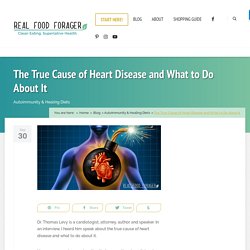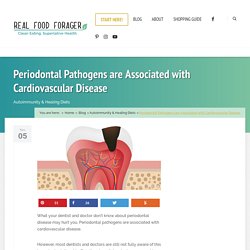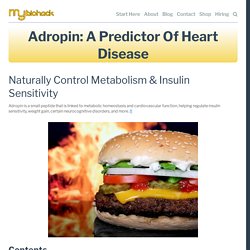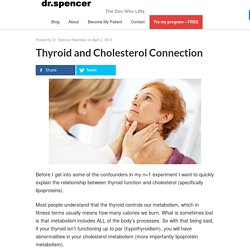

There are several camps, all of which have some research and application behind them:
* Vegan diets with low fat
* Paleo diets with some saturated and mono-saturated fats and lots of vegetables
* Low-carb/keto diets with saturated fats.
This section represents conflicting advice from these perspectives, so read more than one post.
It may be that the choice for you depends on your genetics. If you are ApoE4 positive (a genetic predisposition to handling cholesterol poorly) or have hyperlipodemia, then adding more fat will be a problem. Not all people are genetically suited to a vegan diet--there is more to health than cholesterol numbers. Methylation status is also important (have homocysteine checked). There are also gut microbiome factors at play (see the section for that).
My preference (at this point) is a paleo diet with lots of vegetables and moderate levels of fats, including olive oil and avocados. I have concerns about restrictive diets that deviate too much from traditional diets.
It goes without saying that all helpful diets are low in sugar and processed carbohydrates. Good sleep, addressing circadian rhythm, losing extra weight, exercise and dealing with stress are all part of the picture. You can't solve those issues with a pill.
One other thing...there is a lot of attention paid to blood biomarkers of CVD. Just because a medication or supplement changes the biomarkers favourably doesn't mean that the outcome (less illness or death) is improved. It might be possible to shift the biomarker without dramatically changing the disease state.
Nutrition and High Blood Pressure/Stroke. Perfect Health Diet/Paul Jaminet Series on Cardiovascular Health. Quantitative Medicine Series on Heart Health (and other posts) Cholesterol and Blood Markers. Medication and Heart Health. Circulation and Vascular Health. Atrial Fibrillation. Metabolic Cardiology: Solving the Heart's Energy Crisis. The Truth About Saturated Fat and Heart Disease with Dr. Joel Kahn - The Energy Blueprint. The True Cause of Heart Disease and What to Do About It. Dr.

Thomas Levy is a cardiologist, attorney, author and speaker. In an interview, I heard him speak about the true cause of heart disease and what to do about it. He gave a very clear explanation that conventional medicine does not acknowledge. According to Dr. Levy, the cause of ALL chronic disease is due to increased oxidative stress. The state of increased oxidative stress IS THE DISEASE. I have written many times in the past about the fact that underlying all the complexities of disease, is oxidative stress. If your redox balance is out of balance – that is, if you have free electrons floating around creating free radicals – this is a state of oxidative stress. What causes the increase in oxidation is a very complex matter and has to do with environmental exposures, foods, triggers, genetics, microbiome, as well as your general state of health. Read more about why inflammation is your worst enemy.
Powerful Toxin Neutralizers Vitamin C is perhaps the most powerful anti-oxidant. Heart Rate Variability - Why You Should Know Yours. Heart Health and the Gut Microbiome. Gray Hair May Predict Heart Disease. Research reveals a link between men with gray hair and a heightened risk of heart disease.

Most people associate gray hair with the natural aging process. However, new research indicates that gray hair might mean more than the fact that one is aging. Research made public at the recent EuroPrevent 2017 event links the presence of gray hair to a heightened risk of heart disease in men. This is not to say that every man who has gray hair is at risk of a heart attack. Yet it seems as though the graying of hair and atherosclerosis have similar mechanisms like oxidative stress, senescence of functional cells, DNA repair, hormonal changes and inflammation. About the Study The study analyzed the prevalence of gray hair in men who have coronary artery disease.
The extent of the study participants' gray/white hair was quantified with a “hair whitening” score. The research group determined that an elevated hair graying score of three or more is linked to a higher risk for coronary artery disease. Periodontal Pathogens are Associated with Cardiovascular Disease. What your dentist and doctor don’t know about periodontal disease may hurt you.

Periodontal pathogens are associated with cardiovascular disease. However, most dentists and doctors are still not fully aware of this important relationship. Functional medicine doctors are reaching out to dentists and other oral health professionals with new information. Dr. Amy Doneen and Dr Bradley Bale have written a book called, Beat the Heart Attack Gene, The Revolutionary Plan to Prevent Heart Disease, Stroke, and Diabetes. Adropin: A Predictor of Heart Disease. Infarct size is positively correlated with blood adropin level in animal models of cerebral ischemia (stroke).

R. Not-So-Obvious Cardiometabolic Risk Factors Worth Considering. Magnesium Deficiency Linked to Stiff Arteries. Endothelial Glycocalyx: A New Focus for Cardiovascular Risk Reduction. Errors in Heart Risk Assessment: All-Too-Common, Easily Avoided. Thyroid and Cholesterol Connection - Dr. Spencer Nadolsky. Before I get into some of the confounders in my n=1 experiment I want to quickly explain the relationship between thyroid function and cholesterol (specifically lipoproteins).

Most people understand that the thyroid controls our metabolism, which in fitness terms usually means how many calories we burn. What is sometimes lost is that metabolism includes ALL of the body’s processes. So with that being said, if your thyroid isn’t functioning up to par (hypothyroidism), you will have abnormalities in your cholesterol metabolism (more importantly lipoprotein metabolism). In my article Cholesterol is Not the Enemy I discussed that it is the LDL particles / apo B that are the real issue and not the cholesterol concentrations per se.
Well in hypothyroidism (low thyroid state), LDL particles and apo B levels are increased. 1. 2. Either way, when you give thyroid hormone to someone with hypothyroidism, lipid/lipoprotein abnormalities improve.